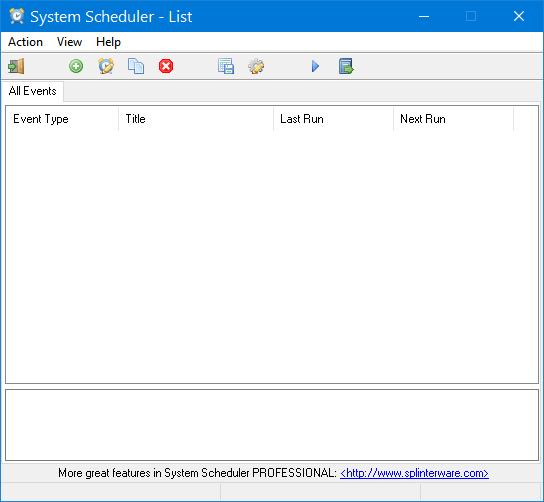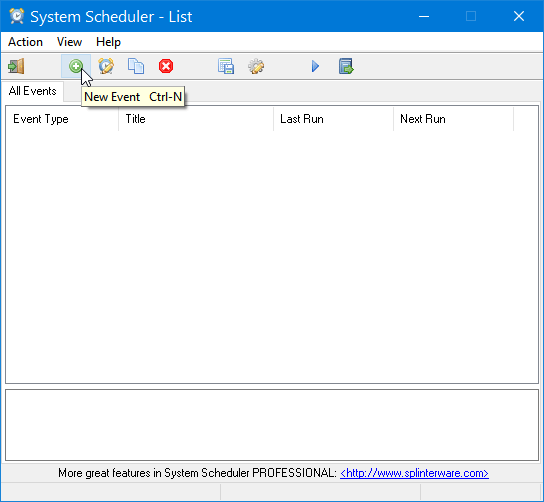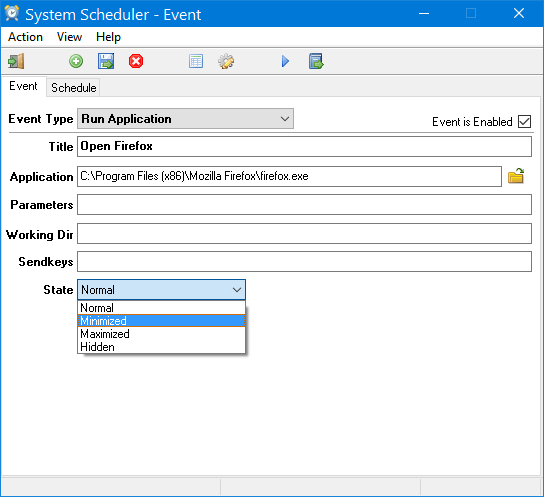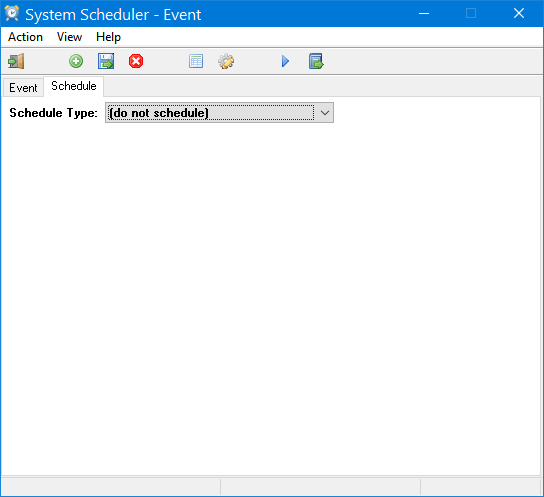Windows Task Scheduler is one of the best features of the Windows operating system. Using this built-in tool, it is possible to schedule any task with the help of Task Scheduler. Sometimes, when you need to do something in automation or at a predefined time, you can opt for Windows Task Scheduler, which will let you do whatever you want. You can run applications or set reminders using Windows Task Scheduler. Using Task Scheduler, you can schedule Shutdown or Restarts, play a Song at every Computer Startup, run a Batch File automatically, rename scheduled task, wake up the computer from Sleep at a particular time, make Windows speak out the time, automate Enhanced Disk Cleanup Tool operation, send an Email, etc.
Free task scheduler program
However, if you are not familiar with this in-built Windows tool and want to get an alternative, you can check System Scheduler. System Scheduler is a free tool for Windows and one of the best alternatives to Windows Task Scheduler. This tool comes with some basic options. What will let you make tasks and schedule them accordingly?
As System Schedule is free, you will not have to spend a single dollar on this. This free tool can do three different things:
- It can set a reminder. That means you will get a popup window at a predefined time that will help you to remember some important tasks or meetings or anything else.
- It can run any selected application. That means if you want to start any application to do something automatically at a particular time, you can opt for this option.
- It can close the error window automatically.
Let’s check out each of them.
Splinterware System Scheduler review
Download System Scheduler and install it on your PC. It runs on almost all versions of Windows as there are no such special system requirements. After installing and opening it on your PC, you will get a window like this,

Set an application to run at the predefined time:
We have to run an application at a particular time with System Scheduler. You will have to create an event executing each task for anything with this tool. To create an event, click on the green plus sign placed on the top navigation menu.

Next, select Run Application from the “Event Type” drop-down menu. By default, it is set, though. Now, enter a title to recognize the task later. After that, select the application path by clicking on the folder icon.

That’s it!
There is no need to select any parameters, working directory, or send keys. But, you can choose the “State” that will help you open the application in a particular state, i.e., Normal, Minimize, Maximize, etc.
After selecting the application, switch to the Schedule tab and set a time. You can also repeat the task.

Finally, click on the Save button next to the “Create New Event” button.
Create popup reminder using System Scheduler:
It is easier than running the application automatically. Create a new event, select Popup Reminder from the Event Type menu, enter a title and text. After that, you will have to set a time from the Schedule tab.
Window Watcher feature
The third option is Window Watcher, which will mainly help you automatically terminate any error popup or Window. You can set a caption from the given list to detect the error window correctly and execute the right task.
After that, you can choose Criteria, i.e., Window exists, Window does not exist, etc. The last thing is Action. You will have to select a time for that.
System Scheduler comes with some basic settings that will let you:
- Run this program at system startup
- Hide/show Edit, Snooze, Fade effects, etc. buttons
- Show/hide icon from the system tray
- And more!
You can download System Scheduler from here. System Scheduler free version is completely free for a lifetime. But, if you want more features, you can opt for the professional version. However, that is not necessary if you’re going to execute the basic tasks mentioned above.
How do I run a script for Windows Task Scheduler?
You can run a program when creating a new task in the Task Scheduler. If you want to run a script, you can choose the script file instead. Windows will automatically open the script in the associated program. So, if you are running a BAT file, it will run in Windows Terminal. If you run a Python script, you can launch it in a program installed on your PC to run the Phyton script file.
Will a scheduled event still run even if you are not logged in?